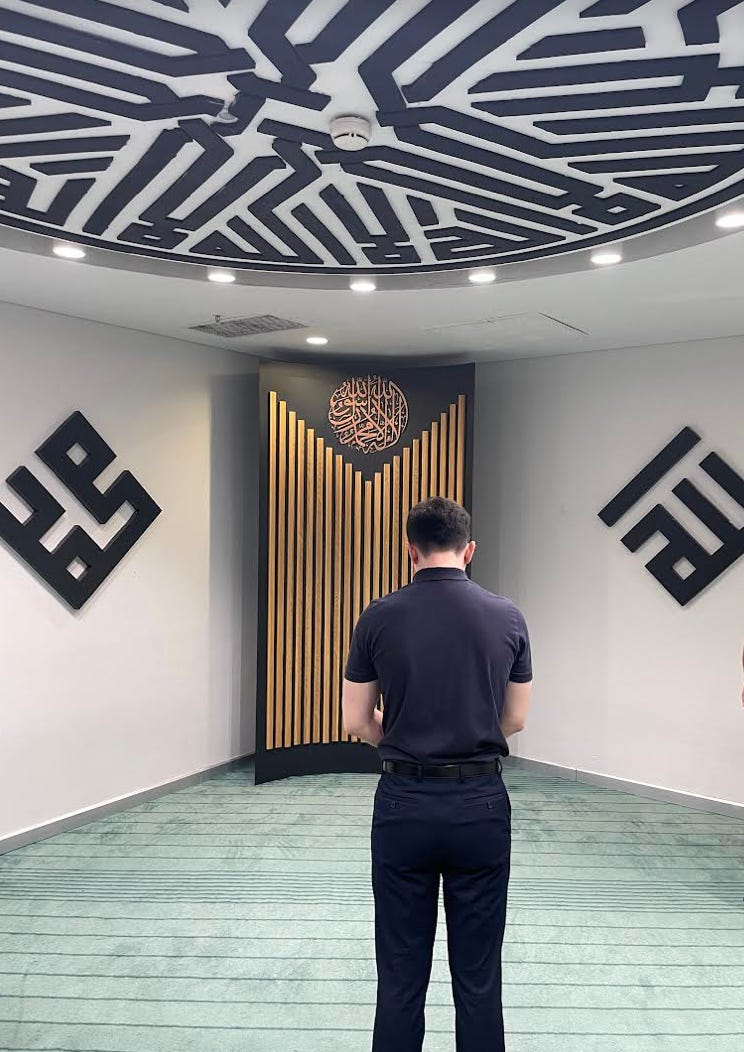We’re just a few days away from the start of the high school halaqa. I’ll start the first class by sketching out a few broad questions and use the students’ answers to help me determine where it’s most productive for our curriculum to go. I pursued this with great success for the middle schoolers this past spring: “What,” I asked the boys, “are some obligations specific to Muslim men?”
By seeing how our students approach big questions (at their age level), I get a better sense of where they are, balancing what they need to know—there’s a crisis of masculinity in America because we don’t understand masculinity, or gender more broadly, in responsible, productive, purposeful and ultimately sacred ways—with what they’d like to focus on. That’s also the path for this year’s curricula.
I want to know what these young men and women think and believe. I also want them to know we must not be afraid to critically appraise ideas and opinions, even those that seem self-evidently good and true, from a faith-based perspective. That takes confidence. Creativity. And, of course, religious literacy. The need to do that is huge. And our kids need to be able to continue such rigor after we’re gone.
Are we empowering them to do that?
In the last few months, I’ve been thinking a lot about how we ask young children and adults to focus on how they’re feeling and build themselves on this basis—but the more I reflect on this, the more this astonishes me. The Islamic tradition broadly considers feelings a profoundly unstable basis on which to build a self; our feelings fluctuate wildly even in a day, never mind that they don’t naturally match right and wrong.
After all, what’s right isn’t necessarily what feels good—it might be the opposite. And what’s wrong doesn’t necessarily feel bad. We see examples in how our popular culture endorses attitudes and perspectives grounded in shallow and dangerous selfishness. “Do what feels good,” from the celebration of ego and greed to the rapid embrace of vices that cause immense long-term personal and social harm.
Who thinks sports gambling is a good thing? Who really believes marijuana is harmless? With older students, we can have substantive conversations. But with younger kids, we can model philosophy through pedagogy: Before you explain the logic of such an approach, or really before that logic can even make sense, have our kids been raised to reflexively help, sacrifice, and contribute?
Our environments and expectations should make it clear we do not define ourselves based loosely on how we’re feeling, on who we abstractly and even solipsistically think we are, but on what we do. Because when the bottom falls out—and it will, very soon—and the latest faddish approach proves to be dangerous, hollow, and self-defeating, will we be ready with something truer to human nature?
I for one think the tide is turning. Take this New York Times essay, which says more than enough in these few paragraphs:
The youngest adults, …marinating in a positive psychology culture since they left the womb, may be the most deeply affected by the inward shift of the search for happiness. A recent survey from Harvard’s Graduate School of Education makes the case that we are, as a culture, overfocusing on the “psychological talk and a self-help culture” that has “caused many people to look inward to find meaning and vitality. Yet the self by itself is a poor source for meaning.”
Mr. Sandler told me people ask him all the time whether they should track their emotions and whether it will make them happier. He said he tells them to focus instead on contentment, “the feeling of being satisfied with your life overall.”
Shorter version: You can spend your life chasing happiness, probably won’t find it, and cause all kinds of harms along the way, ironically to yourself as much as to anyone else. Or we can build a life of purpose, and through that, find meaning, dignity, purpose, even contentment. The former is futile—by asking us to spend more time with ourselves. The latter is demanding and ergo gratifying—less time worried about ourselves and how we’re feeling. More on God, humanity, country, and community.
Because it’s one thing to realize a way of life is in retreat. (What else do we say about cultures that can’t muster compelling answers to, say, “should we have kids?”—how far gone do we have to be that we cannot commit to life’s most basic secular and sacred imperative—to keep going?) Yet it’s another thing altogether to build that answer, not abstractly or (only) theoretically, but actually.
We aren’t first and foremost what we feel. We certainly aren’t what we accumulate or consume. We aren’t where we were born or what country we come from.
We are what we aspire to.
Further Reading
More to come soon. Sunday Schooled is a free resource for parents, educators, and community leaders—join the community!








